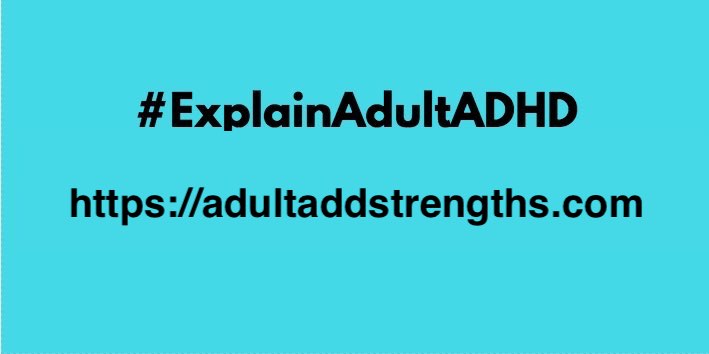
Part of #ExplainAdultADHD. A campaign to reduce the ignorance, misinformation, and stigma against adults with ADHD.
Drop the Kid Gloves
“This didn’t happen every time, but it was often enough that I don’t think I’ll ever tell anyone about my diagnosis anymore.
There have been times that it was extremely relevant, and I’ve shared it with people (employers, classmates, team members etc) to try and help explain what was going on or why I was struggling with this or that, and their demeanor would instantly change.
A moment before they would be talking to me as a colleague, but after ADHD was mentioned, it was over.
Whether it was a slow calm voice and a smile or curt instructions, it was the same. I was spoken to as if I were a child again, being “handled” just so.
Expectations of me were greatly diminished or non-existent and interactions became awkward and uncomfortable for both parties.
I have been told that ADHD was made up and to get over myself, had responsibilities quietly removed and reassigned to other staff, or been simply ignored and left to my own devices.
These experiences were incredibly alienating and I felt so embarrassed.
I hate being treated like I am not capable, or like I am less than. Being talked down to is humiliating, and being publicly outed after a request for privacy is devastating.
I didn’t mention my ADHD to get special treatment or to make excuses for myself, it was necessary and useful for people to know about it so we could come to an understanding and work together more effectively.
I wish there wasn’t such a stigma surrounding ADHD, and I wish that it wouldn’t color people’s perception of my abilities so much.
So many people seem to assume that it means I am the “special ed” type, you know, the kind who in the 50’s would have been institutionalized.
On the other hand, some people assume that I’m some kind of genius who just can’t concentrate for more that 30 seconds at a time, which I also find strange and ridiculous. It’s come to a point for me that I would rather suffer in silence than be categorized and treated as an “other”.”
By Brianna
Please share this post online with the hashtag #ExplainAdultADHD to help explain adult ADHD to non-ADHD adults so they understand us better.
See other #ExplainAdultADHD stories here.